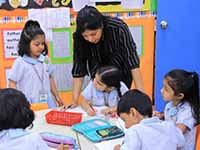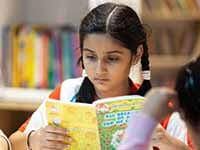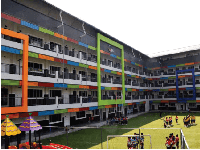Building international partnerships, embracing diversity and addressing global challenges are features of global citizenship. It emphasises individual responsibility in making the world equitable and sustainable, encouraging cross-border cooperation for positive change. Preparing children for global citizenship at international Schools in Malaysia fosters compassion, awareness, and collaboration among learners from varied backgrounds.
Global citizenship teaches students how to navigate an intricate, linked world, instilling respect for cultural diversity and a feeling of responsibility for global challenges. It equips them to create a more sustainable and equitable global society. This article will share how international schools in Malaysia are empowering learners to become responsible global citizens.
Exploring Global Citizenship Education: A Comprehensive Insight
Let us begin by comprehending the dynamic arena of preparing individuals to participate actively in a globalised environment. This educational method aims to build responsible citizens by comprehending cultural diversity and creating empathy. Learners are encouraged to lobby for social justice and tackle environmental sustainability and real-world challenges.
-
Understanding Cultural Diversity
Acknowledging and appreciating cultures, customs, and viewpoints that define our global society is essential for understanding cultural diversity. It emphasises accepting differences, fostering empathy, and connecting beyond cultural borders. Students gain intercultural competence by exploring and appreciating other cultural origins, allowing them to flourish in an increasingly linked world.
-
Promoting Social Justice and Equality
Supporting social equality and justice pushes for fairness, equity and human rights across the globe. It entails confronting systemic inequalities, reducing disparities, and strengthening marginalised groups. Students strive to build a fairer society that offers equal access to opportunities and rights via education, awareness and policy reform.
-
Addressing Environmental Sustainability
Achieving environmental sustainability requires taking preventive steps to protect our planet for future generations. It involves following sustainable practices, supporting conservation initiatives, and reversing the effects of climate change. Students aim for a harmonic balance between human activity and the ecosystem via education, innovation and collaboration.
-
Nurturing Global Responsibility
Nurturing global accountability means developing a sense of responsibility and concern for the globe and its inhabitants. It entails raising knowledge about international concerns and motivating action to address poverty, inequality, and environmental deterioration. Students can make a significant contribution to global society through education and activism.
Emergence of International Schools: Transforming Education in Malaysia
The expansion of global schools represents a significant shift in the country’s educational environment. These institutions are fueled by international standards and local demand, providing a diversified curriculum. They cater to a multicultural student body and substantially impact Malaysia’s educational standards.
-
Historical Foundations
Malaysian international schools had origins in colonial-era institutes, primarily serving expatriate communities. These schools gradually developed to accommodate a more diversified student body, mirroring Malaysia’s multicultural tapestry. Their historical origins have significantly influenced Malaysia’s current international education setting.
-
Meeting Growing Demand
Over time, international schools in Malaysia have adapted to the rising demand from both native and expatriate families seeking a quality education. This demand reflects Malaysia’s desire for globalised education and the acknowledgement of international schools as providers of robust academic standards, curricula, and multicultural learning environments.
-
Diversity in Education
Diversity in education refers to recognising differences amongst learners, teachers, and instructional strategies. It integrates diverse cultural origins, learning styles, capabilities, and perspectives into learning spaces. By appreciating diversity, schools create inclusive settings that encourage equality, empathy, and mutual respect among everyone.
-
Accreditation and Standards
Accreditation and benchmarks are the criteria designed to guarantee the quality and uniformity of educational programmes offered by Best International Schools in Malaysia. Adhering to recognised standards ensures that international schools continue to provide high-quality educational experiences, creating confidence and credibility among learners, their parents, and communities.
Navigating Curriculum and Teaching Approaches in International Schools
Curriculum and teaching styles in global schools are critical in moulding students’ educational experiences. These educational institutions use different curricular frameworks and creative teaching approaches that appeal to their diverse student base, promoting global perspectives. Here are some strategies that international schools in Malaysia implement:
-
Inquiry-Based Learning
Inquiry-driven education emphasises active student exploration to impart knowledge. It encourages learners to ask questions, pursue answers and engage in hands-on activities, developing intellectual curiosity and a deeper understanding of subjects. Inquiry-based techniques encourage curiosity and self-directed learning, fostering continuous learning.
-
Technology Integration
Technology integration is adopting digital technologies and resources into classroom activities to improve the quality of education. It includes using smart devices, interactive apps, and online platforms to engage students and personalise learning. Teachers who effectively integrate technology may foster creativity, collaboration, and digital literacy skills.
-
Global Competency Growth
Global competence growth involves acquiring knowledge, skills, and mindsets for successful participation in an interconnected society. It entails developing multicultural interpersonal skills, cultural competency, flexibility, and awareness of global concerns. Student’s capacity to flourish in diverse international environments improves with quality education.
-
Professional Development
Teacher development programmes and training improve educator’s skills and capacities. It includes workshops, conferences and continuous training to elevate teaching methods, curriculum creation and assessment methodologies. These trainings help teachers stay updated on current trends and best practices to adopt in classrooms.
Nurturing Global Citizenship: Shaping Responsible International Citizens
Nurturing international citizenship entails instilling in students a sense of duty, empathy, and cultural understanding to interact with global concerns. They receive the information, skills, and attitudes required to constructively contribute to a diversified and interconnected society in the following ways:
-
Cultivating Cultural Awareness
Raising a multicultural mindset involves developing respect and apathy for different cultures, practices, and customs. Students gain empathy, respect, and tolerance for diverse cultures through education and reflection, which improves their capacity to communicate, work together, and prosper in multicultural settings.
-
Advocating for Social Justice
Advocating for social equality means promoting a fair allocation of resources, rights, and possibilities for everyone, regardless of their background. It entails confronting structural injustices, tackling inequality, and supporting human rights to build a more equitable, welcoming community where everyone can prosper.
-
Engaging in Service Learning
Services learning incorporates meaningful community service activities with the academic curriculum. It allows learners to apply their knowledge to real-world problems, fostering a sense of civic duty. Service learning enables kids to gain leadership abilities and make meaningful contributions to their community.
-
Environmental Stewardship
Environmental stewardship means accepting responsibility for the conservation and protection of the planet. It includes sustainability, responsible resource management, pollution reduction, and habitat restoration. It seeks to maintain the planet’s health and ecological integrity for future generations by raising awareness and enacting proactive measures.
-
Building Global Competence
Building global competence emphasises the knowledge, abilities, and mindsets required to flourish in an interconnected society. It involves learning cross-cultural communication, empathy, adaptation, and critical thinking skills to effectively navigate multiple cultural contexts and handle global concerns, encouraging cooperation on an international level.
Conclusion
Preparing for global citizenship at International Schools Malaysia is critical for preparing learners for a connected society. By boosting diversity and increasing cultural understanding, these institutes teach students to be empathetic, responsible future citizens. Global citizenship can elevate the educational experience and create a more inclusive, sustainable, and peaceful global society.






















